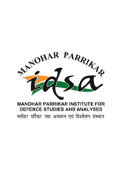The Way to Engage Iran
In addition to the earlier run two pilot cascades of 164 centrifuges, Iran has set up two more cascades of 164 centrifuges each despite repeated calls from the UN Security Council to halt enrichment related work. Addressing a mass rally on February 11, 2007 in Tehran to commemorate the 28th anniversary of the Islamic Revolution, an unrelenting Iranian President boasted about continuing advancements in the country's nuclear programme and promised to announce a further surprising achievement by April 9, 2007.
- Rajesh Kumar Mishra
- February 12, 2007








